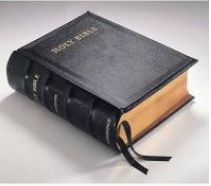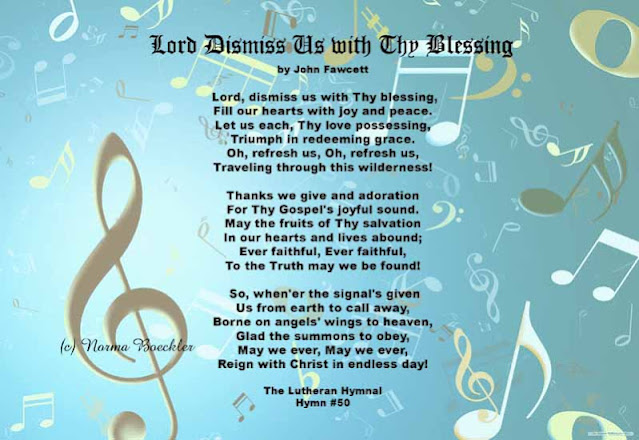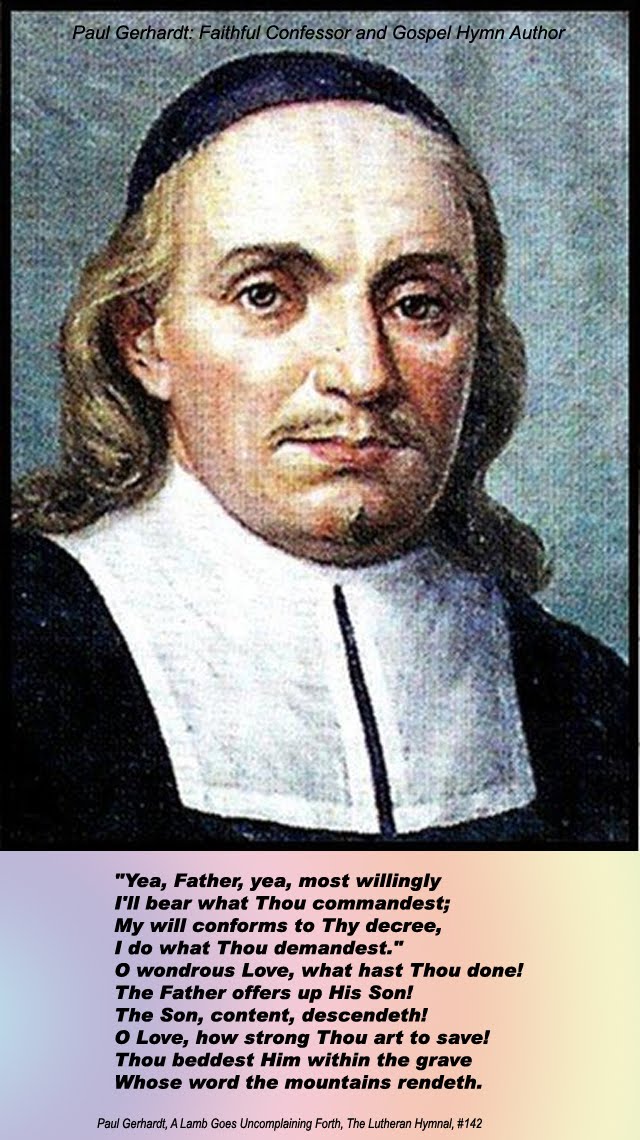WE should always be reluctant to engage in ad hominem arguments, i.e. those that concentrate on personalities rather than issues, but the character and professed beliefs of those involved in such vital matters as the text and translation of the Bible cannot be overlooked. It is necessary that those handling the inspired word of God themselves be spiritual men. This is the teaching of Scripture itself (1 Cor. 2:11-16).
Brooke Foss Westcott (1825-1901) was born at Birmingham and Fenton John Anthony Hort (1828-1892) at Dublin. In 1851 Westcott was ordained an Anglican "priest" and Hort in 1856: their careers were spent mostly in academic positions rather than pastorates. As early as 1853 they began work on their Greek text of the New Testament: this project was to occupy most of their remaining lives. In 1870 the idea of a modest revision of the A.V. was sanctioned by the Southern Convocation of the Church of England, and this provided the opportunity for Westcott and Hort to introduce their radical changes. They defended the inclusion of a Unitarian scholar on the Revision Committee. "The New Testament in the Original Greek" was published in 1881, as was the Revised Version based upon it: this latter failed to gain lasting popularity, but the Westcott-Hort text and theory has dominated the scene since.
Textual criticism cannot be divorced entirely from theology. No matter how great a Greek scholar a man may be, or no matter how great an authority on the textual evidence, his conclusions must always be open to suspicion if he does not accept the Bible as the very Word of God (in FULLER, p.157).
BeliefsThe following quotes from the diaries and letters of Westcott and Hort demonstrate their serious departures from orthodoxy, revealing their opposition to evangelical Protestantism and sympathies with Rome and ritualism. Many more could be given. Their views on Scripture and the Text are highlighted.
1846 Oct. 25th - Westcott: "Is there not that in the principles of the "Evangelical" school which must lead to the exaltation of the individual minister, and does not that help to prove their unsoundness? If preaching is the chief means of grace, it must emanate not from the church, but from the preacher, and besides placing him in a false position, it places him in a fearfully dangerous one." (Life, Vol.I, pp.44,45).
Oct., 22nd after Trinity Sunday - Westcott: "Do you not understand the meaning of Theological 'Development'? It is briefly this, that in an early time some doctrine is proposed in a simple or obscure form, or even but darkly hinted at, which in succeeding ages,as the wants of men's minds grow, grows with them - in fact, that Christianity is always progressive in its principles and doctrines" (Life, Vol.I, p.78).
Dec. 23rd - Westcott: "My faith is still wavering. I cannot determine how much we must believe; how much, in fact, is necessarily required of a member of the Church." (Life, Vol.I, p.46).
1847 Jan., 2nd Sunday after Epiphany - Westcott: "After leaving the monastery we shaped our course to a little oratory...It is very small, with one kneeling-place; and behind a screen was a 'Pieta' the size of life (i.e. a Virgin and dead Christ)...I could not help thinking on the grandeur of the Romish Church, on her zeal even in error, on her earnestness and self-devotion, which we might, with nobler views and a purer end, strive to imitate. Had I been alone I could have knelt there for hours." (Life, Vol.I, p.81).
1848 July 6th - Hort: "One of the things, I think, which shows the falsity of the Evangelical notion of this subject (baptism), is that it is so trim and precise...no deep spiritual truths of the Reason are thus logically harmonious and systematic...the pure Romish view seems to me nearer, and more likely to lead to, the truth than the Evangelical...the fanaticism of the bibliolaters, among whom reading so many 'chapters' seems exactly to correspond to the Romish superstition of telling so many dozen beads on a rosary...still we dare not forsake the Sacraments, or God will forsake us...I am inclined to think that no such state as 'Eden' (I mean the popular notion) ever existed, and that Adam's fall in no degree differed from the fall of each of his descendants" (Life, Vol.I, pp.76-78).
Aug. 11th - Westcott: "I never read an account of a miracle (in Scripture?) but I seem instinctively to feel its improbability, and discover some want of evidence in the account of it." (Life, Vol.I, p.52).
Nov., Advent Sunday - Westcott: "All stigmatise him (a Dr. Hampden) as a 'heretic,'...I thought myself that he was grievously in error, but yesterday I read over the selections from his writings which his adversaries make, and in them I found systematically expressed the very strains of thought which I have been endeavouring to trace out for the last two or three years. If he be condemned, what will become of me?" (Life, Vol.I,p.94).
1850 May 12th - Hort: "You ask me about the liberty to be allowed to clergymen in their views of Baptism. For my own part, I would gladly admit to the ministry such as hold Gorham's view, much more such as hold the ordinary confused Evangelical notions" (Life, Vol.I, p.148).
July 31st - Hort: "I spoke of the gloomy prospect, should the Evangelicals carry on their present victory so as to alter the Services." (Life, Vol.I, p.160).
1851 Feb. 7th - Hort: "Westcott is just coming out with his Norrisian on 'The Elements of the Gospel Harmony.' I have seen the first sheet on Inspiration, which is a wonderful step in advance of common orthodox heresy." (Life, Vol.I, p.181).
1851 Dec. 29,30th - Hort: "I had no idea till the last few weeks of the importance of texts, having read so little Greek Testament, and dragged on with the villainous Textus Receptus. Think of that vile Textus Receptus leaning entirely on late MSS.; it is a blessing there are such early ones" (Life, Vol.I, p.211).
1858 Oct. 21st - Further I agree with them in condemning many leading specific doctrines of the popular theology as, to say the least, containing much superstition and immorality of a very pernmicious kind...The positive doctrines even of the Evangelicals seem to me perverted rather than untrue...There are, I fear, still more serious differences between us on the subject of authority, and especially the authority of the Bible" (Life, Vol.I, p.400).
1860 Apr. 3rd - Hort: "But the book which has most engaged me is Darwin. Whatever may be thought of it, it is a book that one is proud to be contemporary with. I must work out and examine the argument in more detail, but at present my feeling is strong that the theory is unanswerable." (Life, Vol.I, p.416).
Oct. 15th - Hort: "I entirely agree - correcting one word - with what you there say on the Atonement, having for many years believed that "the absolute union of the Christian (or rather, of man) with Christ Himself" is the spiritual truth of which the popular doctrine of substitution is an immoral and material counterfeit...Certainly nothing can be more unscriptural than the modern limiting of Christ's bearing our sins and sufferings to His death; but indeed that is only one aspect of an almost universal heresy." (Life, Vol.I, p.430).
1864 Sept. 23rd - Hort: "I believe Coleridge was quite right in saying that Christianity without a substantial Church is vanity and dissolution; and I remember shocking you and Lightfoot not so very long ago by expressing a belief that 'Protestantism' is only parenthetical and temporary. In short, the Irvingite creed (minus the belief in the superior claims of the Irvingite communion) seems to me unassailable in things ecclesiastical." (Life, Vol.II, p.30,31).
1865 Sept. 27th - Westcott: "I have been trying to recall my impressions of La Salette (a marian shrine). I wish I could see to what forgotten truth Mariolatry bears witness; and how we can practically set forth the teaching of the miracles".
Nov. 17th - Westcott: "As far as I could judge, the 'idea' of La Salette was that of God revealing Himself now, and not in one form but in many." (Life, Vol.I. pp.251,252).
Oct. 17th - Hort: "I have been persuaded for many years that Mary-worship and 'Jesus'-worship have very much in common in their causes and their results." (Life, Vol.II, p.50).
1867 Oct. 17th - Hort: "I wish we were more agreed on the doctrinal part; but you know I am a staunch sacerdotalist, and there is not much profit in arguing about first principles." (Life, Vol.II, p.86).
1890 Mar. 4th - Westcott: "No one now, I suppose, holds that the first three chapters of Genesis, for example, give a_literal history - I could never understand how any one reading them with open eyes could think they did - yet they disclose to us a Gospel. So it is probably elsewhere."
Chronology of the Revision1825 Jan. 12th - Brooke Foss Westcott born at Birmingham.
1828 Apr. 23rd - Fenton John Anthony Hort born at Dublin.
1851 Dec. 21st - Westcott ordained "priest" in Church of England.
1853 Jan.-Mar. - Westcott and Hort agree upon plan of a joint revision of the text of the Greek Testament.
Apr. 19th - Hort: "He (Westcott) and I are going to edit a Greek text of the New Testament some two or three years hence, if possible." (Life, Vol.I, p.250).
June - Mr. Daniel Macmillan suggests to Hort that he should take part in an interesting and comprehensive 'New Testament Scheme.' Hort was to edit the text in conjunction with Mr. Westcott; the latter was to be responsible for a commentary, and Lightfoot was to contribute a N.T. Grammar and Lexicon. (Life, Vol.I, pp.240,241).
Sept. 29th - Westcott to Hort: "As to our proposed recension of the New Testament text, our object would be, I suppose, to prepare a text for common and general use...With such an end in view, would it not be best to introduce only certain emendations into the received text, and to note in the margin such as seem likely or noticeable - after Griesbach's manner?...I feel most keenly the disgrace of circulating what I feel to be falsified copies of Holy Scripture (a reference to the A.V.?), and am most anxious to provide something to replace them. This cannot be any text resting solely on our own judgment, even if we were not too inexperienced to make one; but it must be supported by a clear and obvious preponderance of evidence. The margin wiil give ample scope for our own ingenuity or principles...my wish would be to leave the popular received text except where it is clearly wrong." (Life, Vol.I, pp.228,229).
Nov. 4th - Hort: "I went down and spent a Sunday with Westcott...We came to a distinct and positive understanding about our Gk. Test. and the details thereof. We still do not wish it to be talked about, but are going to work at once, and hope we may perhaps have it out in little more than a year." (Life, Vol.I, p.264).
Westcott and Hort start work on their Greek text.
1856 Feb. ? - Hort ordained "priest" in Church of England.
Mar. 20th - Hort: "I think I mentioned to you before Campbell's book on the Atonement, which is invaluable as far as it goes; but unluckily he knows nothing except Protestant theology" (Life, Vol.I, p.322).
1857 Feb. 23rd - Hort to Westcott: "I hope to go on with the New Testament text more unremittingly" (Life, Vol.I, p.355).
First efforts to secure revision of the Authorised Version by five Church of England clergymen.
1858 Oct. 21st - Hort: "The principle literary work of these years was the revision of the Greek Text of the New Testament. All spare hours were devoted to it." (Life, Vol.I, p.399).
1860 May 1st - Hort to Lightfoot: "If you make a decided conviction of the absolute infallibility of the N.T. practically a sine qua non for co-operation, I fear I could not join you, even if you were willing to forget your fears about the origin of the Gospels." (Life, Vol. I, p.420).
May 4th - Hort to Lightfoot: "I am also glad that you take the same provisional ground as to infallibility that I do." (Life, Vol.I, p.424).
May 5th - Westcott to Hort: "at present I find the presumption in favour of the absolute truth - I reject the word infallibility - of Holy Scripture overwhelming." (Life, Vol.I, p.207).
May 18th - Hort to Lightfoot: "It sounds an arrogant thing to say, but there are very many cases in which I would not admit the competence of any one to judge a decision of mine on a textual matter, who was only an amateur, and had not some considerable experience in forming a text." (Life, Vol.I, p.425).
1861 Apr. 12th - Hort to Westcott: "Also - but this may be cowardice - I have a sort of craving that our text should be cast upon the world before we deal with matters likely to brand us with suspicion. I mean, a text, issued by men already known for what will undoubtedly be treated as dangerous heresy, will have great difficulties in finding its way to regions which it might otherwise hope to reach, and whence it would not be easily banished by subsequent alarms." (Life, Vol.I, p.445).
1862 Apr. 30th, May 1st - Hort: "It seems to be clearly and broadly directed to maintaining that the English clergy are not compelled to maintain the absolute infallibility of the Bible. And, whatever the truth may be, this seems just the liberty required at the present moment, if any living belief is to survive in the land." (Life, Vol.I, p.454).
1870 Westcott and Hort print tentative edition of their Greek N.T. for private distribution only. (This they later circulated under pledge of secrecy within the company of N.T. revisers, of which they were members).
Feb. 10th - Southern Convocation of Church of England resolve on desirability of revision of A.V. Northern Convocation declines to cooperate.
May - Committee of 18 elected to produce a Revised Version.
The 7 members of the N.T. Committee invite 18 others, making 25.
May 29th - Westcott to Hort: "though I think that Convocation is not competent to initiate such a measure, yet I feel that as 'we three' are together it would be wrong not to 'make the best of it' as Lightfoot says. Indeed, there is a very fair prospect of good work, though neither with this body nor with any body likely to be formed now could a complete textual revision be possible. There is some hope that alternative readings might find a place in the margin." (Life, Vol.I, p.390).
June 4th - Westcott to Lightfoot: "Ought we not to have a conference before the first meeting for Revision? There are many points on which it is important that we should agreed. The rules though liberal are vague, and the interpretation of them will depend upon decided action at first." (Life, Vol.I, p.391).
July 1st - Westcott to Hort: "The Revision on the whole surprised me by prospects of hope. I suggested to Ellicott a plan of tabulating and circulating emendations before our meeting, which may prove valuable." (Life, Vol.I, pp.392,393).
July 7th - Hort: "Dr. Westcott and myself have for above seventeen years been preparing a Greek text of the New Testament. It has been in the press for some years, and we hope to have it out early next year." (Life, Vol.II, p.137).
Aug. ? - Hort to Lightfoot: "It is, I think, difficult to measure the weight of acceptance won beforehand for the Revision by the single fact of our welcoming an Unitarian, if only the Company perseveres in its present serious and faithful spirit." (Life, Vol.II, p.140). (Dr. G. Vance Smith, a Unitarian scholar, was a member of the Revision Committee. At Westcott's suggestion, a celebration of Holy Communion was held on June 22nd before the first meeting of the N.T. Revision Company. Dr. Smith communicated but said afterwards that he did not join in reciting the Nicene Creed and did not compromise his principles as a Unitarian. The storm of public indignation which followed almost wrecked the Revision at the outset. At length however Dr. Smith remained on the Committee).
1881 Bishop Ellicott submits the Revised Version to the Southern Convocation.
May 12th - Westcott and Hort's "The New Testament in the Original Greek" Vol. I published (Text and short Introduction).
May 17th - the Revised Version is published in England, selling two million copies within four days. It fails however to gain lasting popular appeal.
Sept. 4th - Westcott and Hort's "The New Testament in the Original Greek" Vol.II published (Introduction and Appendix).
Oct. - first of Dean Burgon's three articles in the Quarterly Review against the Revised Version appears.
1882 May - Ellicott publishes pamphlet in reply to Burgon, defending the Westcott and Hort Greek text.
1883 Burgon publishes The Revision Revised, including a reply to Ellicott.




















